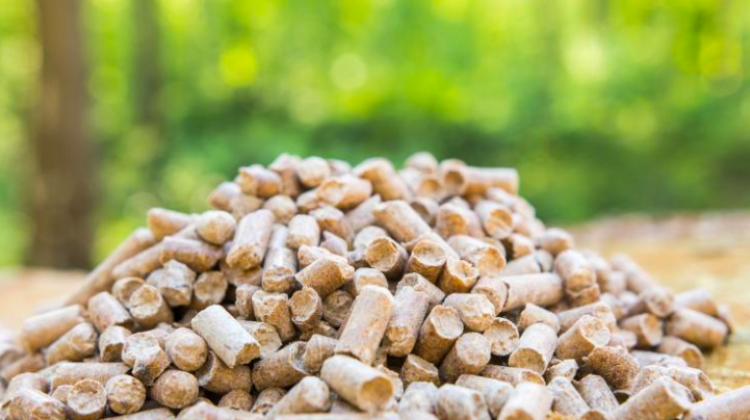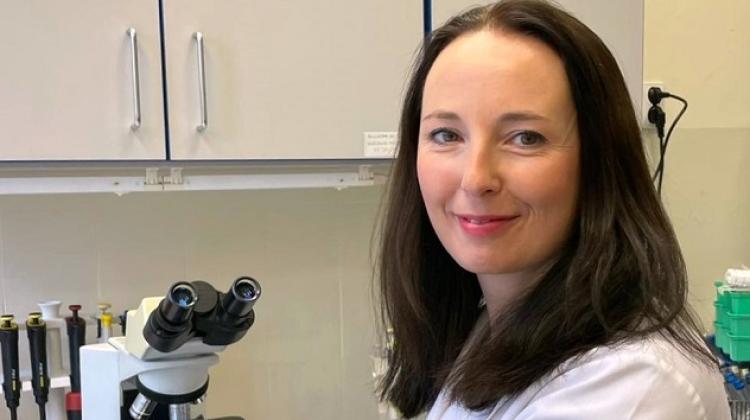Fuel and biochar from biomass?
 Photo: Fotolia
Photo: Fotolia
Scientists from the Lodz University of Technology are working on a new torrefaction technology with the use of superheated steam. It will allow to produce fuel blends, biochar as an additive to fertilizers and activated carbon, as well as recover by-products that have been polluting the environment.
Torfaction is a thermal-chemical biomass conversion (charring) process without oxygen, under nitrogen or dry superheated steam. However, currently used torrefaction methods do not allow to recover valuable by-products of this process. The use of superheated steam enables such recovery.
"Using superheated steam instead of nitrogen makes it possible to recover by-products from the torrefaction process: formic acid and acetic acid, which in current technologies are burned and removed in the form of flue gas into the atmosphere. It will increase the quality and economic value of the process that will become more environmentally friendly" - says Dr. Szymon Szufa from the Faculty of Process and Environmental Engineering, Lodz University of Technology. He received over PLN 1.1 million in funding from the Lider programme for the implementation of the project.
The researcher emphasizes that for the production of energy from biomass to become profitable, a strong market position of this material is necessary, including biomass from agricultural crop waste (currently unused maize and oats straw), energy crops (such as giant miscanthus), wood biomass from forestry waste and bio-waste from wastewater treatment plants.
According to Dr. Szufa, the torrefaction process (high-temperature carbonisation of biomass in special reactors powered by superheated steam) allows to improve the environmental performance of biomass and its energy efficiency. It is also the cheapest method of biomass charring.
The goal of the "Biocarbon" project is to develop, build and optimise plants for torrefaction of plant biomass. The installation will consist of a steam generator, a dryer and a specially designed biomass torrefaction reactor.
This will allow to produce three new products: fuel for the power industry and individual recipients (blend of torrefied biomass with various types of waste, such as bio-waste from wastewater treatment plants), biochar as an additive to organic fertilizers, and activated carbon for the chemical industry or power industry, which can be used as a substrate in filters for removing mercury from flue gas.
After biochar production, the next stage of will be the development of a comprehensive biomass production technology on low-grade soils. Biochar will be an addition to fertilizers. The process will use environmentally friendly methods.
As part of the project, scientists will assess the quality of fuel biomass, analyse biochar, its ashes and their use in the form of additives to fertilizers. They will also conduct an economic analysis of the implementation of developed cultivation technologies and the process of biomass torrefaction in industry.
According to Dr. Szufa, the innovation of this project lies mainly in the fact that it withdraws from the use of "torgas" or inert gas, such as nitrogen, in the process of torrefaction.
Similar solutions are not used in the world market because there are currently no low power superheated steam generators (less than 1 MW). Superheated steam is produced in large power industry. "The construction of biomass torrefying installations only makes sense if it is economically feasible. The proposed technology has an innovative potential because it provides good process temperature control as well as homogeneous products with different usable properties" - notes Dr. Szymon Szufa.
In his opinion, the project will allow to reduce the negative environmental impact of stored organic municipal waste. "The size of the cultivation areas will also increase with the use of biostimulants on worse-class soils, which are not used for agriculture, including food production" - emphasises the author of the project.
The project is scheduled to be completed in December 2021. (PAP)
szu/ zan/ kap/
tr. RL
Przed dodaniem komentarza prosimy o zapoznanie z Regulaminem forum serwisu Nauka w Polsce.
















